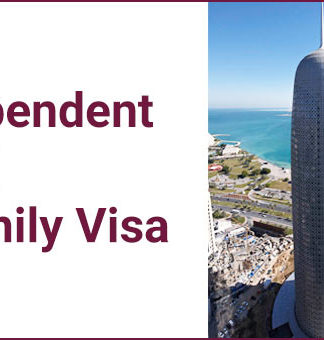OPINION
6 HOURS AGO
Justice was once again denied to Abu Ghraib survivors after US mistrial
The lack of a verdict sets a dangerous precedent amid global crises, including the mistreatment of Palestinians in Israeli detention centres and of Ukrainian inmates by Russian officials.
Hamzah Rifaat
HAMZAH RIFAAT
The abuses against detainees in the Abu Ghraib prison in Iraq using “enhanced interrogation techniques” came to public attention in April 2004. Survivors have been fighting for justice ever since. / Photo: AP Archive
AP ARCHIVE
The abuses against detainees in the Abu Ghraib prison in Iraq using “enhanced interrogation techniques” came to public attention in April 2004. Survivors have been fighting for justice ever since. / Photo: AP Archive
It’s been 20 years since the Abu Ghraib prison abuse scandal.
Gruelling, harrowing, disturbing and inhumane images of United States soldiers abusing and humiliating prison inmates at the Abu Ghraib prison in Iraq sent shockwaves across the world.
Much criticism was directed at then-Secretary of Defense Donald Rumsfeld for promoting and supervising prisoner abuse under US President George W. Bush’s administration.
Justice however, has been elusive for the victims of Abu Ghraib. Three plaintiffs fought a long legal battle and finally had their day in court last month after filing a civil case against the Virginia-based, Consolidated Analysis Center, Inc. (CACI).
They alleged that horrific abuses were committed at the prison by employees who were working for the US military at the time.
The trial however, resulted in the jury being deadlocked, with the judge presiding over the case eventually declaring a mistrial last week.
This is a travesty of justice.
The context
It started after the 2003 US-led invasion in Iraq to topple Saddam Hussein’s regime. In 2004, the US TV news programme 60 Minutes II revealed images of Iraqi men being psychologically abused, physically beaten and brazenly humiliated by their American jailers in the Abu Ghraib prison.
This also came 13 months after the US invasion and subsequent occupation of Iraq.
The scandal became a symbol of US imperialism, exceptionalism and hypocrisy given that the US had promoted itself as a so-called bastion of human rights intent on “Iraqi liberation,” before its own military was found beating Iraqi prisoners and subjecting them to physical, psychological and sexual violence.
According to the International Committee of the Red Cross (ICRC), 70 to 90 percent of the inmates at Abu Ghraib were innocent bystanders who were mistakenly arrested and subject to sadistic, blatant and wanton abuses by US military personnel.
The ICRC’s own report in 2004 stated that numerous examples existed in Abu Ghraib which violated the Geneva Conventions, including insults, humiliations, psychological and physical torture by interrogators.
The findings, pictures and reports resulted in a global outcry that went right up to the United Nations. At the time, Acting High Commissioner for Human Rights Bertrand Ramicharan suggested that the Abu Ghraib prisoner abuse scandal could constitute a war crime.
The first lawsuit against CACI was filed in 2008 and was delayed by 15 years due to legal wrangling and dismissals by the company over claims that workers enjoyed immunity and legal protections as they were working with the US military. A year later, a US federal appeals court dismissed a suit filed by 250 Iraqis who were subjected to torture at Abu Ghraib based on a legal doctrine called “battlefield preemption.”
Yet despite the severity and scale of the abuses committed, only a few lower-ranked military officers were put on trial.
Setting a dangerous precedent
Such lack of accountability is problematic. The 2024 mistrial comes at a time when the world is witnessing intractable crises of immense proportions.
It sets a dangerous precedent that prisoner abuse can continue in the absence of legal consequences or safeguards for victims. This includes the mistreatment of Palestinians in Israeli detention centres and of Ukrainian inmates by Russian officials.
Thousands of Ukrainian prisoners have been incarcerated in Russian jails since the invasion began in 2022, with the UN stating that Russian servicemen tortured them with electric shocks, persistent beatings, mock executions, prolonged stress positions and threats of execution.
Similarly, Israeli doctors have described horrific conditions for Palestinian prisoners from Gaza in temporary detention centres, which includes being restrained at all times, being blindfolded and subject to physical punishments, humiliation and abuse.
The 2024 mistrial in Virginia sends a signal that the status quo should prevail in countries such as Israel and Russia, given the apparent lack of accountability for the US openly flouting the Geneva Convention in 2004.
It provides a justification for Tel Aviv and Moscow to point out the US’s so-called “high moral ground,” which allows their security agencies and military personnel to carry out heinous acts against largely innocent victims in prison.
Historic lawsuit
Still, in the absence of historical accountability, the recent trial in Virginia was a historic one. For the very first time, three Iraqi plaintiffs who were detained in Abu Ghraib testified in front of civilian jurors in the United States.
They are Suhail Najim Abdullah Al Shimari, Salah Al-Ejaili and As’ad Al-Zuba’e. Al-Ejaili was a journalist prior to being apprehended by US forces and testified that he was brutally beaten, tied up and kept in conditions of sensory deprivation despite never being charged with any crime. His co-plaintiffs said they suffered similar abuse.
The trial began with plaintiffs arguing that CACI was liable for mistreatment despite not being able to prove that the contractor’s interrogators were directly responsible for abusing inmates. Evidence came in the form of testimonies of the victims and two US retired army generals who documented abuse at Abu Ghraib and linked CACI with it.
During the eighth day of deliberations however, a judge declared a mistrial or an inconclusive trial after the eight-member civil jury in Alexandria was unable to agree to a verdict. This came straight after CACI argued that it shouldn’t be liable to acts committed by the US Army and responsibility should be pinned on the government instead.
A possibility of a retrial exists, but the jury deadlock indicates that justice could once again prove elusive for the victims of the Abu Ghraib prisoner abuse scandal which shook the world, violated the Geneva Conventions and exposed American exceptionalism and hypocrisy.
Will justice ever be served?
SOURCE: TRT WORLD
Hamzah Rifaat
Hamzah Rifaat
He obtained degrees in Peace and Conflict Studies in Islamabad, Pakistan and in World Affairs and Professional Diplomacy from the Bandaranaike Diplomatic Training Institute in Colombo, Sri Lanka. Hamzah was also a South Asian Voices Visiting Fellow at the Stimson Center in Washington, DC in 2016.






























